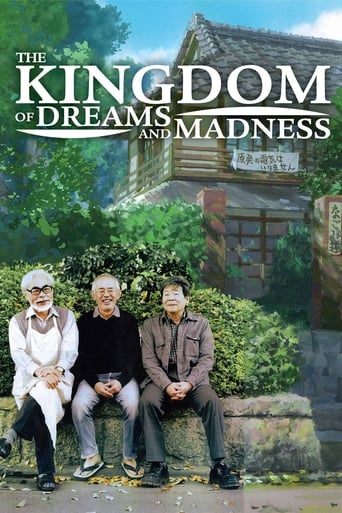
16 Nov 2013

The Kingdom of Dreams and Madness
Follows the behind-the-scenes work of Studio Ghibli, focusing on the notable figures Hayao Miyazaki, Isao Takahata, and Toshio Suzuki.
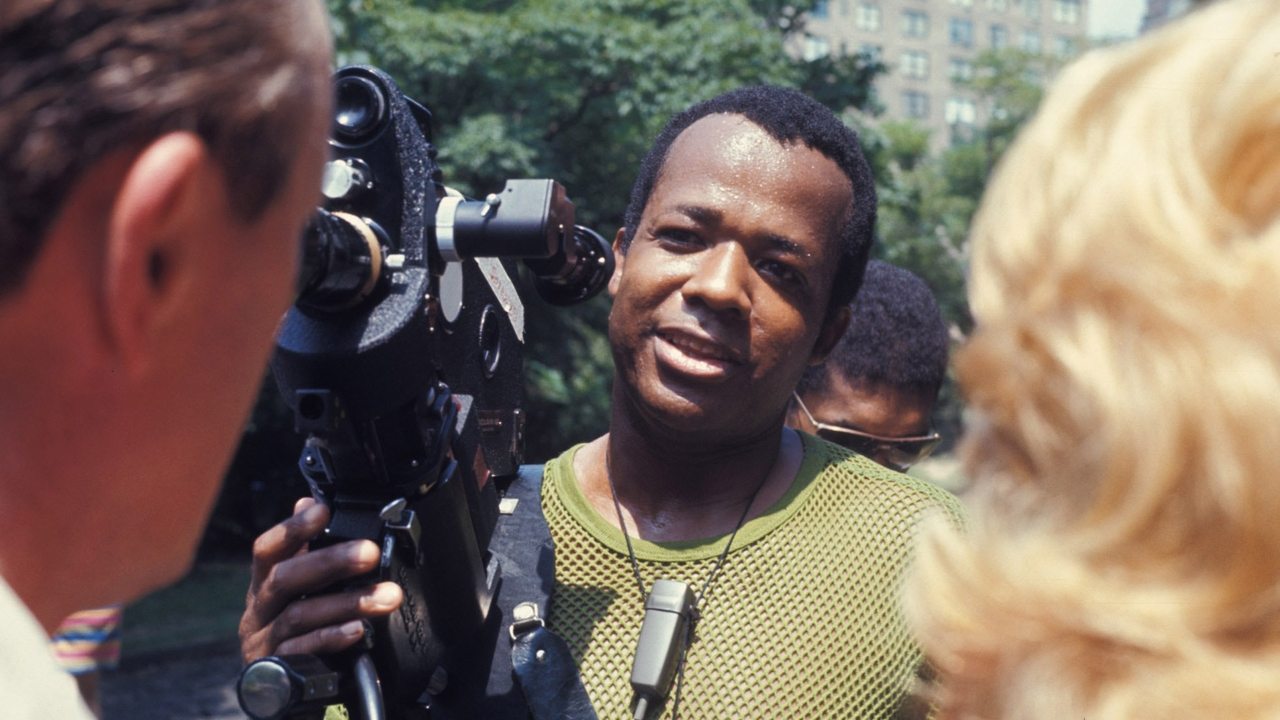
In Manhattan's Central Park, a film crew directed by William Greaves is shooting a screen test with various pairs of actors. It's a confrontation between a couple: he demands to know what's wrong, she challenges his sexual orientation. Cameras shoot the exchange, and another camera records Greaves and his crew. Sometimes we watch the crew discussing this scene, its language, and the process of making a movie. Is there such a thing as natural language? Are all things related to sex? The camera records distractions - a woman rides horseback past them; a garrulous homeless vet who sleeps in the park chats them up. What's the nature of making a movie?

Self - Actress Testing for Alice

Self - Actor Testing for Freddy

Self - Soundman
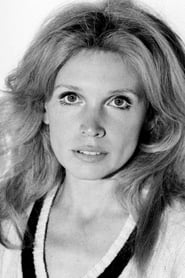
Self - Actress Testing for Alice (uncredited)
Black Lady Clapping Her Hands (uncredited)
Self - Camera Assistant (uncredited)

16 Nov 2013

Follows the behind-the-scenes work of Studio Ghibli, focusing on the notable figures Hayao Miyazaki, Isao Takahata, and Toshio Suzuki.
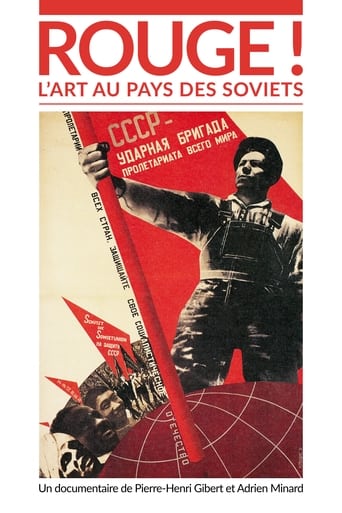
10 Mar 2019

No overview found
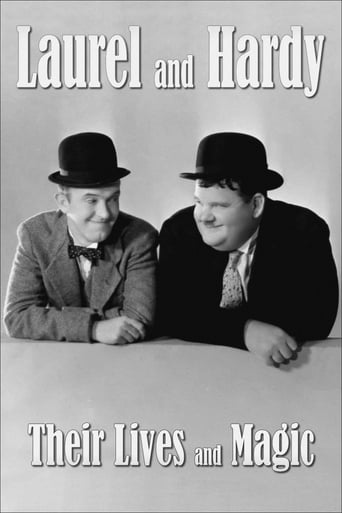
28 Dec 2011

The lives of Stan Laurel (1890-1965) and Oliver Hardy (1892-1957), on the screen and behind the curtain. The joy and the sadness, the success and the failure. The story of one of the best comic duos of all time: a lesson on how to make people laugh.
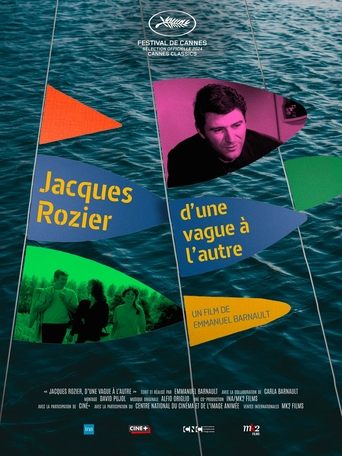
19 May 2024

Jacques Rozier or the fierce, independent itinerary of a filmmaker in perpetual disarray, admired by his peers and pampered by the critics.
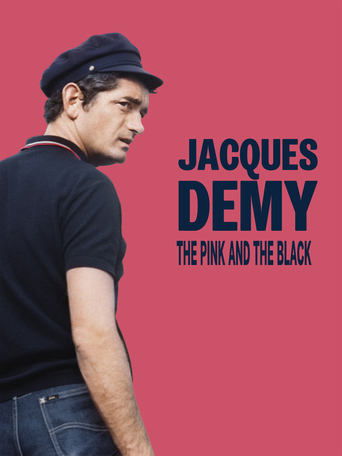
22 May 2024

Jacques Demy’s ability to enchant audiences was rooted in his personal struggles and doubts as a showman, establishing him as one of French cinema’s greatest artists.
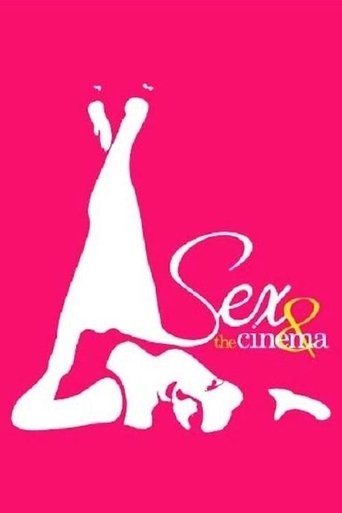
11 Nov 2009

Sex and Cinema is a steamy trip through the looking glass of the camera lens, depicting how sexually charged films reflect our own sexual liberation. It will unzip America's obsession with sex, both from a cinematic and social perspective, exposing the hypocrisy inherent in our culture's war against eroticism (be it film, art, literature or song lyrics). The special will look at many films that push the boundary, from mainstream studio films to product that in its time has been considered pornographic.
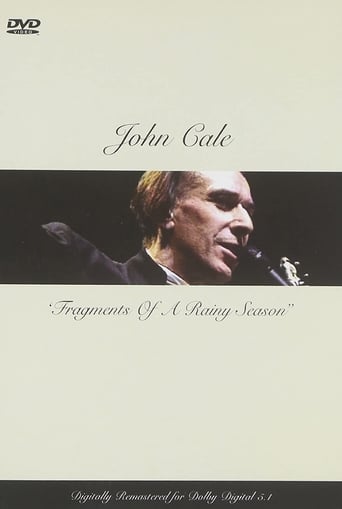
31 Dec 1992

Solo live concert recorded in Brussels, April 12, 1992. Tracks: 1) On A Wedding Anniversary 2) Lie Still, Sleep Becalmed 3) Do Not Go Gentle Into That Good Night 4) The Soul of Carmen Miranda 5) Cordoba 6) Ship Of Fools 7) Leaving It Up To You 8) The Ballad Of Cable Hogue 9) Chinese Envoy 10) Fear Is A Man's Best Friend 11) Dying On The Vine 12) Heartbreak Hotel 13) Paris 1919 14) (I Keep A) Close Watch 15) Hallelujah
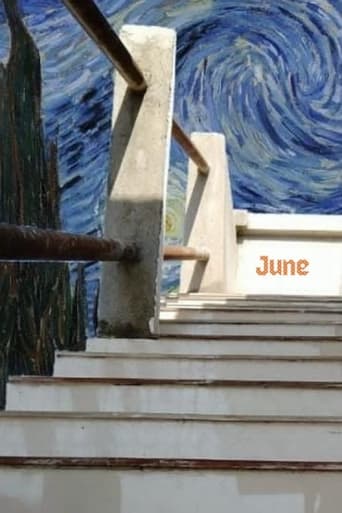
31 Dec 2024

A letter of love to my past self who discovered himself.

30 Jun 1896

A group of people are standing along the platform of a railway station in La Ciotat, waiting for a train. One is seen coming, at some distance, and eventually stops at the platform. Doors of the railway-cars open and attendants help passengers off and on. Popular legend has it that, when this film was shown, the first-night audience fled the café in terror, fearing being run over by the "approaching" train. This legend has since been identified as promotional embellishment, though there is evidence to suggest that people were astounded at the capabilities of the Lumières' cinématographe.

23 Sep 1927

A day in the city of Berlin, which experienced an industrial boom in the 1920s, and still provides an insight into the living and working conditions at that time. Germany had just recovered a little from the worst consequences of the First World War, the great economic crisis was still a few years away and Hitler was not yet an issue at the time.
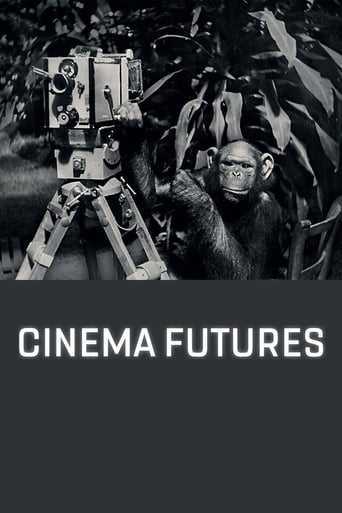
02 Sep 2016

Analog celluloid strips are disappearing. Is film dying, or just changing? Are the world's film archives on the brink of a dark age? Renowned filmmakers, museum curators, historians, and engineers help dramatize the future of film and the cinema in the age of digital moving pictures.
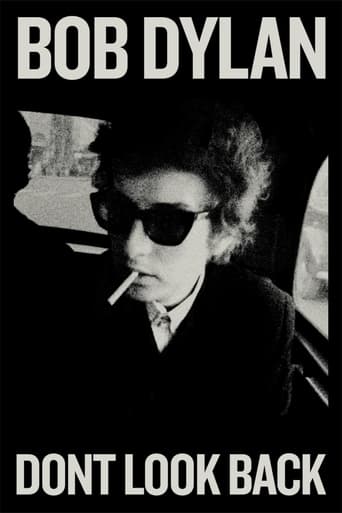
17 May 1967

In this wildly entertaining vision of one of the twentieth century’s greatest artists, Bob Dylan is surrounded by teen fans, gets into heated philosophical jousts with journalists, and kicks back with fellow musicians Joan Baez, Donovan, and Alan Price.
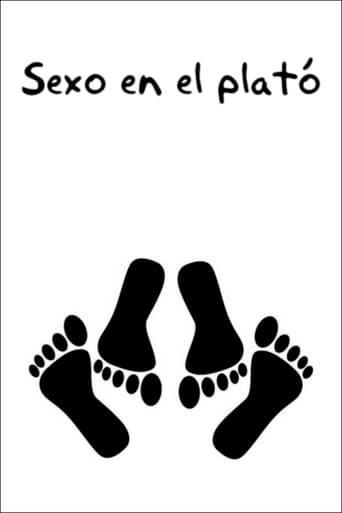
09 Apr 2007

How are the sex scenes filmed? What tricks are used to fake the desire? How do the interpreters prepare and feel? Spanish actors and directors talk about the most intimate side of acting, about the tricks and work methods when narrating exposed sex. In Spain the general rule is that there are no rules. Each film, each interpreter, faces it in very different ways.
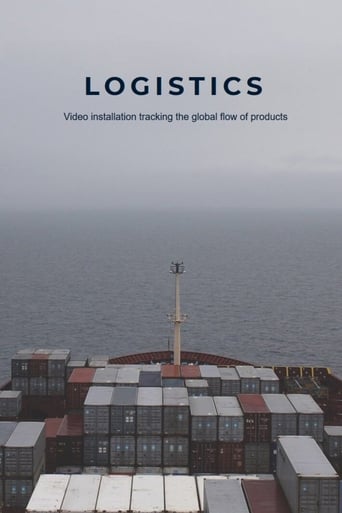
01 Jan 2012

Logistics or Logistics Art Project is an experimental art film. At 51,420 minutes (857 hours or 35 days and 17 hours), it is the longest movie ever made. A 37 day-long road movie in the true sense of the meaning. The work is about Time and Consumption. It brings to the fore what is often forgotten in our digital, ostensibly fast-paced world: the slow, physical freight transportation that underpins our economic reality.
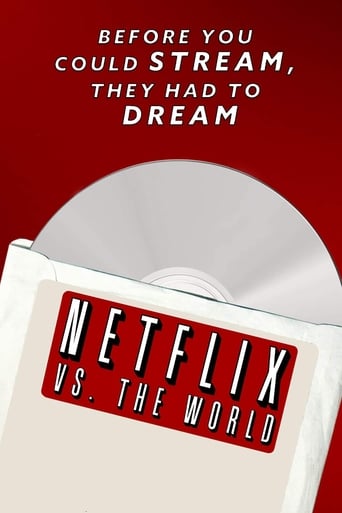
11 Dec 2020

The story of how a tiny, broke Silicon Valley startup slew giants of the movie rental world, warded off Amazon and forced movie making and distribution into the digital age.
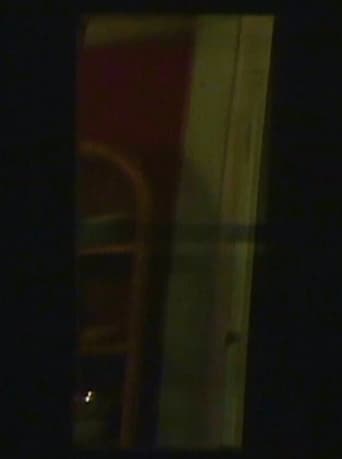
30 Sep 2024

Daily dedications to a minor artisan of the classical Hollywood western. Each segment was originally a kind of letter, a private correspondence, sent in fragments to a friend over a few weeks—an ode to R.G. but also to B.C. (an ode to cinema, to everyday life, and to the cinephilic fantasy of their becoming indistinguishable).
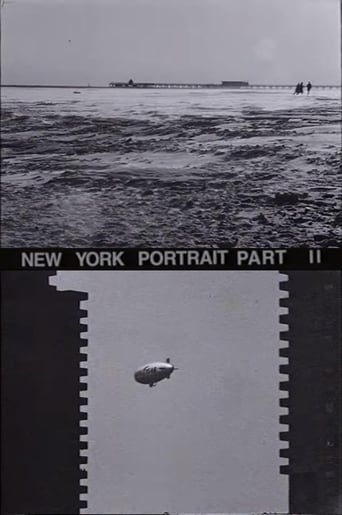
01 Jan 1981

Chapter Two represents a continuation of daily observations from the environment of Manhattan compiled over a period from 1980-1981. This is the second part of an extended life's portrait of New York.
15 Oct 2006
Four lives that could not be more different and a single passion that unites them: the unconditional love for their cinemas, somewhere at the end of the world. Comrades in Dreams brings together six cinema makers from North Korea, America, India and Africa and follows their efforts to make their audiences dream every night.
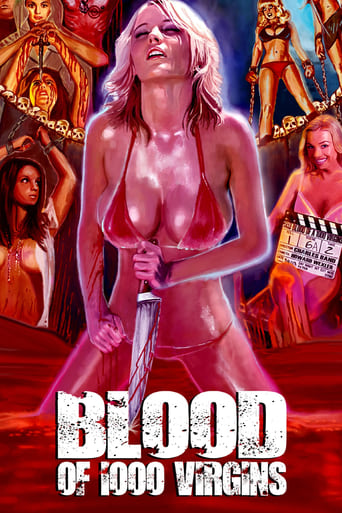
14 May 2013

The question of "who hunts virgins" and more will be stripped down and explored in the sexiest trailers hosted by Playboy's Nikki Leigh.
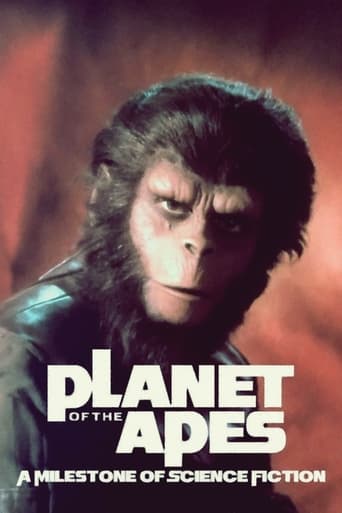
03 May 2024

Since its release in 1968, Planet of the Apes, the masterful film directed by Franklin J. Schaffner and starring Charlton Heston, and its subsequent sequels have asked its viewers challenging questions about contemporary society under the guise of a bold science fiction saga: a fascinating look at a hugely successful pop culture phenomenon.